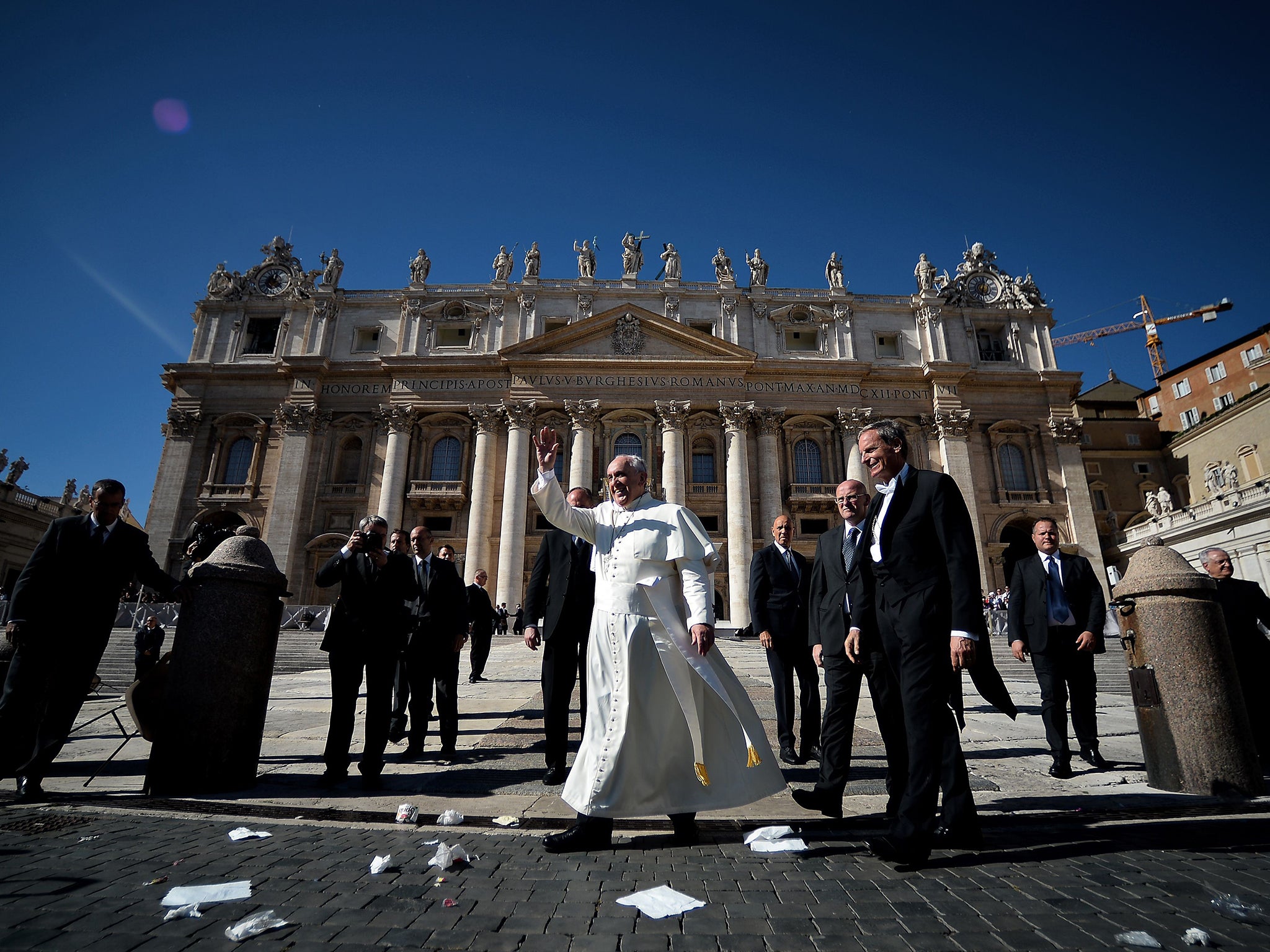Vatican closes the book on financial practices 'from Middle Ages'
Revelations that hundreds of millions of euros have been found 'tucked away' in accounts of various departments of the Holy See

Your support helps us to tell the story
From reproductive rights to climate change to Big Tech, The Independent is on the ground when the story is developing. Whether it's investigating the financials of Elon Musk's pro-Trump PAC or producing our latest documentary, 'The A Word', which shines a light on the American women fighting for reproductive rights, we know how important it is to parse out the facts from the messaging.
At such a critical moment in US history, we need reporters on the ground. Your donation allows us to keep sending journalists to speak to both sides of the story.
The Independent is trusted by Americans across the entire political spectrum. And unlike many other quality news outlets, we choose not to lock Americans out of our reporting and analysis with paywalls. We believe quality journalism should be available to everyone, paid for by those who can afford it.
Your support makes all the difference.Vatican officials will be forced to work from a strict new financial rulebook from 1 January 2015, as Pope Francis makes the final push to clean up the Holy See after decades of sleaze.
The accounting manual will improve the Holy See’s financial statements “and harmonise them with international standards”, according to the Vatican Insider website, putting paid to accounting practices which one expert said were “from the Middle Ages”.
Its arrival follows new revelations that hundreds of millions of euros have been found “tucked away” in accounts of various departments of the Holy See without having appeared in the city-state’s balance sheets.
The sums were discovered by Francis’s financial trouble-shooter, Cardinal George Pell, Prefect of the Secretariat for the Economy. Cardinal Pell said Vatican departments had long had “an almost free hand” with their finances and had followed “long-established patterns” in managing their affairs.

“Very few were tempted to tell the outside world what was happening, except when they needed extra help,” he said, singling out the Secretariat of State – in effect the Church’s diplomatic corps – as one department that appeared particularly secretive.
The Australian cardinal said there was no suggestion of graft regarding the undeclared sums, but rather evidence of arcane working practices. “It was impossible for anyone to know accurately what was going on overall,” he said.
The Vatican watcher and papal biographer Marco Politi said events showed that Francis was serious about cleaning out the Vatican stables, once and for all.
“What we’re seeing is the determination of Francis to have complete transparency in the way the Vatican operates,” he said. “The latest revelations are good news. It shows Pell is doing a good job. He never stops looking. He’s so energetic that Francis calls him ‘The Ranger’.”
Mr Politi said that once the new financial guidelines were in place, with Pell to police them, the Vatican should finally emerge from the attitudes and working practices that have held sway “since the Middle Ages”.
Cardinal Pell has said that reforms were “well under way and already past the point where the Vatican could return to the ‘bad old days’”.
But the Vatican still has an important hurdle to climb: gaining the international all-clear for its trouble bank, the Institute for Religious Works (IoR), which has been hit by a series of scandals stretching back to the fraudulent bankruptcy of Banco Ambrosiano in the 1980s.
The IoR has been working with the Bank of Italy and the Organisation for Economic Cooperation and Development “for the Holy See’s inclusion in the so-called White List” – an OECD designation for countries that meet international standards on transparency and tax regulations. But so far its applications for inclusion have failed.
Last year it emerged that as part of the programme to crack down on graft, the IoR had decided to close 900 suspicious accounts. Four of the suspect accounts were linked to the Vatican embassies of Indonesia, Iran, Iraq and Syria. The account closures followed a judicial report that said the bank was money laundering hot spot.
Monsignor Nunzio Scarano, a former senior Vatican accountant who had close ties to the IoR, is now on trial accused of plotting to smuggle millions of dollars into Italy from Switzerland in a scheme to help rich friends dodge taxes. He has also been indicted on separate charges of laundering millions of euros through the IOR.
In June this year Pope Francis sacked the all-Italian, five-man board of the Vatican’s financial watchdog, the Financial Information Authority, and brought in a fresh international line-up.
The IoR is cracking down on security, after suggestions that it was too easy for non-account holders to access funds. Mr Politi said all these initiatives were likely to help it win OECD approval.
Join our commenting forum
Join thought-provoking conversations, follow other Independent readers and see their replies
Comments